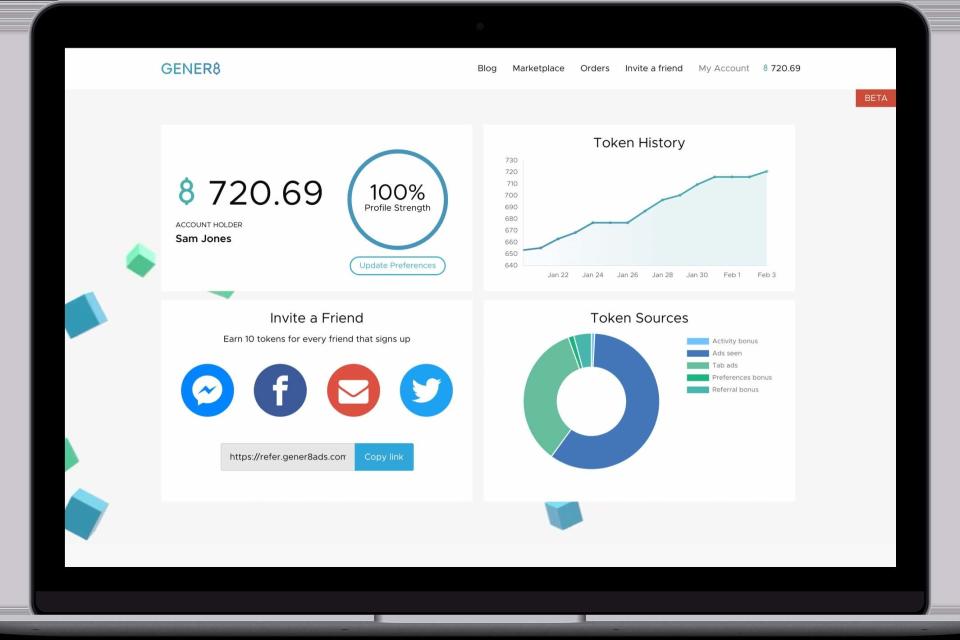Take back control: The smart start-ups putting data back into your hands

How many companies on the internet have your data? 50, maybe 100 max? My result was more like 578, though the average user can expect at least 350. That’s nearly 600 companies that have access to information such as my name, birth date, financial information and my social media data.
In the past two years, people are starting to reckon with how much of their personal data is out there. We only have to look back at the 2018 Cambridge Analytica scandal, when data obtained from Facebook quizzes was used to target voters in the 2016 US presidential election, to see the impact online information about us can have.
The introduction of GDPR in May 2018 was supposed to give people control of their data, particularly the “right to be forgotten” clause which means companies have to delete the data they hold on someone. However, it’s not easy to enforce.
I know the scale of my digital footprint thanks to start-up Mine (saymineapp.com). Launched in January in the UK after raising $3 million in seed funding from tech investment firms Battery Ventures and Saban Ventures, Mine uses machine learning to find the companies that own your data via your inbox and then takes advantage of the “right to be forgotten” to reclaim it back for you at the click of a button.
Mine’s algorithms are able to discern companies that hold your data by using only the email subject. “Let’s say there’s an email saying ‘Welcome to Airbnb’, the AI works out that if it’s an introduction to the company, it’s a sign up,” explains co-founder and CEO Gal Ringel. “Then we analyse the privacy policies of companies — if you have an account with Airbnb we know you’ve supplied them with your first and last name, date of birth and a copy of your passport.”
Knowing that Airbnb holds all this information on me isn’t a problem — I regularly use the platform to book places, and the same goes for other companies that have my financial data like Spotify. Yet it’s alarming to scroll down the list and see the names of companies I don’t recognise — according to Ringel, almost 80 per cent of the companies found in the average inbox hold data from a one-time interaction. “This means your personal data stays there forever and you don’t get any value out of it anymore,” he says.

It’s also putting us at risk: in recent weeks there have been data scandals at Grindr, Twitter and Microsoft. For the average Mine user, their information has been a part of 10 data breaches that they didn’t even know about.
“Every day there is a new data breach or privacy scandal. You can’t really control and prevent it because security is hard but at Mine we will help you keep your data only where you actually need it.”
Mine isn’t supposed to terrify you into never using the internet again. Ringel is a big proponent of the benefits of the online world himself — he discovered 700 companies held his own data, though he has since slimmed that down to 350. “If you want to use the power of the internet, you have to give your personal data. We’re not saying stop sharing, just now you can see what companies have that information and control it.” The app wants to change the conversation from being focused on data privacy to ownership.
This is something London-based adtech company Gener8 has made its mission, too (gener8ads.com). Founded by former Red Bull marketing manager Sam Jones, Gener8 is a browser add-on that allows people to make money from the advertisements they see, so it’s a more equal relationship. “As more people realise their data is inherently valuable, they’ll want one of two things: to have the ability to control it or the ability to make money,” he explains.

Named one of TechNation’s rising stars of 2019, Gener8 now has more than 60,000 UK users. By signing up, Gener8 will serve you ads based on things you’re interested in and you earn a point every time you see an ad online. Points can be exchanged for products, Amazon vouchers or even a cash donation to charity.
It has its benefits for ad agencies too: Gener8 has a 760 per cent higher click-through rate than the industry standard. “People are more engaged with what we’re showing them — they’ve told us what they want to see and we’re showing it, with their permission,” adds Jones.

 Yahoo News
Yahoo News 
